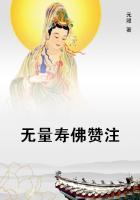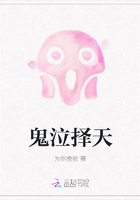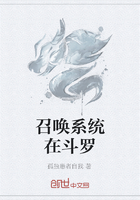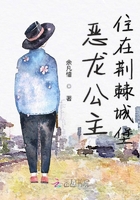He laughed, and, catching up his hat, went out, walking furiously at first, then slower and slower, for his head began to whirl, and, taking a cab, was driven to a restaurant in Soho. He had eaten nothing but a biscuit since his breakfast, always a small matter, and ordered soup and a flask of their best Chianti--solids he could not face. More than two hours he sat, white and silent, perspiration on his forehead, now and then grinning and flourishing his fingers, to the amusement and sometimes the alarm of those sitting near. But for being known there, he would have been regarded with suspicion. About half-past nine, there being no more wine, he got up, put a piece of gold on the table, and went out without waiting for his change.
In the streets, the lamps were lighted, but daylight was not quite gone. He walked unsteadily, toward Piccadilly. A girl of the town passed and looked up at him. Staring hard, he hooked his arm in hers without a word; it steadied him, and they walked on thus together. Suddenly he said:
"Well, girl, are you happy?" The girl stopped and tried to disengage her arm; a rather frightened look had come into her dark-eyed powdered face. Fiorsen laughed, and held it firm. "When the unhappy meet, they walk together. Come on! You are just a little like my wife. Will you have a drink?"The girl shook her head, and, with a sudden movement, slipped her arm out of this madman's and dived away like a swallow through the pavement traffic. Fiorsen stood still and laughed with his head thrown back. The second time to-day. SHE had slipped from his grasp. Passers looked at him, amazed. The ugly devils! And with a grimace, he turned out of Piccadilly, past St. James's Church, ****** for Bury Street. They wouldn't let him in, of course--not they! But he would look at the windows; they had flower-boxes--flower-boxes! And, suddenly, he groaned aloud--he had thought of Gyp's figure busy among the flowers at home. Missing the right turning, he came in at the bottom of the street. A fiddler in the gutter was scraping away on an old violin. Fiorsen stopped to listen. Poor devil! "Pagliacci!" Going up to the man--dark, lame, very shabby, he took out some silver, and put his other hand on the man's shoulder.
"Brother," he said, "lend me your fiddle. Here's money for you.
Come; lend it to me. I am a great violinist.""Vraiment, monsieur!"
"Ah! Vraiment! Voyons! Donnez--un instant--vous verrez."The fiddler, doubting but hypnotized, handed him the fiddle; his dark face changed when he saw this stranger fling it up to his shoulder and the ways of his fingers with bow and strings. Fiorsen had begun to walk up the street, his eyes searching for the flower-boxes. He saw them, stopped, and began playing "Che faro?" He played it wonderfully on that poor fiddle; and the fiddler, who had followed at his elbow, stood watching him, uneasy, envious, but a little entranced. Sapristi! This tall, pale monsieur with the strange face and the eyes that looked drunk and the hollow chest, played like an angel! Ah, but it was not so easy as all that to make money in the streets of this sacred town! You might play like forty angels and not a copper! He had begun another tune--like little pluckings at your heart--tres joli--tout a fait ecoeurant!
Ah, there it was--a monsieur as usual closing the window, drawing the curtains! Always same thing! The violin and the bow were thrust back into his hands; and the tall strange monsieur was off as if devils were after him--not badly drunk, that one! And not a sou thrown down! With an uneasy feeling that he had been involved in something that he did not understand, the lame, dark fiddler limped his way round the nearest corner, and for two streets at least did not stop. Then, counting the silver Fiorsen had put into his hand and carefully examining his fiddle, he used the word, "Bigre!" and started for home.
XIX
Gyp hardly slept at all. Three times she got up, and, stealing to the door, looked in at her sleeping baby, whose face in its new bed she could just see by the night-light's glow. The afternoon had shaken her nerves. Nor was Betty's method of breathing while asleep conducive to the slumber of anything but babies. It was so hot, too, and the sound of the violin still in her ears. By that little air of Poise, she had known for certain it was Fiorsen; and her father's abrupt drawing of the curtains had clinched that certainty. If she had gone to the window and seen him, she would not have been half so deeply disturbed as she was by that echo of an old emotion. The link which yesterday she thought broken for good was reforged in some mysterious way. The sobbing of that old fiddle had been his way of saying, "Forgive me; forgive!" To leave him would have been so much easier if she had really hated him; but she did not. However difficult it may be to live with an artist, to hate him is quite as difficult. An artist is so flexible--only the rigid can be hated. She hated the things he did, and him when he was doing them; but afterward again could hate him no more than she could love him, and that was--not at all. Resolution and a sense of the practical began to come back with daylight. When things were hopeless, it was far better to recognize it and harden one's heart.
Winton, whose night had been almost as sleepless--to play like a beggar in the street, under his windows, had seemed to him the limit!--announced at breakfast that he must see his lawyer, make arrangements for the payment of Fiorsen's debts, and find out what could be done to secure Gyp against persecution. Some deed was probably necessary; he was vague on all such matters. In the meantime, neither Gyp nor the baby must go out. Gyp spent the morning writing and rewriting to Monsieur Harmost, trying to express her chagrin, but not saying that she had left Fiorsen.















